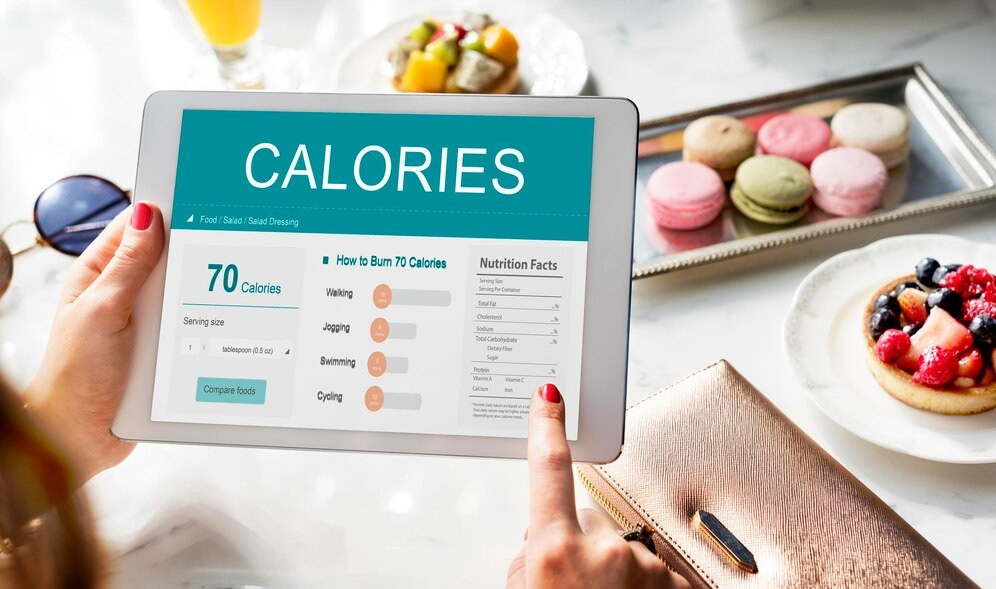Aside from regular exercise, managing your food portions can help you reach your ideal weight. The proper portion sizes can help you lose weight faster. What are the recommended meal portions for maintaining an ideal body weight? Check out the following article.
Portion control strategies for weight loss
Portion control is the process of organizing and managing the amount of food consumed during a meal. To control your calorie intake, you decide how much food to eat at each meal. This can help you reach or maintain your target weight.
Caloric requirements for weight loss vary from person to person depending on several factors, including age, height, weight, metabolic rate, gender, other health conditions such as pregnancy, breastfeeding, and other diseases, as well as the level of physical activity.
To determine how many calories you require per day, use calorie counting calculators, which are widely available on health websites or apps. In general, the daily calorie requirements are as follows:
| Age | The number of calorie needs is based on gender | |
| Men | Women | |
| 19-30 years | 2,400-3,000 calories | 2,000-2,400 calories |
| 31-60 years | 2,200-3,000 calories | 1,600-2,200 calories |
| Over 61 years | 2,000-2,600 calories | 1,600-2,000 calories |
Table 1. The number of daily calorie needs is based on gender and age
Understanding your daily calorie needs enables you to create a calorie deficit, which reduces your overall daily calorie intake. Typically, this deficit is achieved by reducing your daily intake by 500–750 kcal, but it's advisable to consult with a nutritionist or dietitian for personalized guidance.
Once you've determined your daily calorie requirements, consider reducing simple carbohydrates like rice and white bread. These foods can spike blood sugar levels and lead to increased hunger. Instead, opt for complex carbohydrates such as whole wheat bread.
Here are effective portion control strategies:
Using a plate
Nowadays, there are diet plates with pictures of food types and portions printed on them. However, you do not need to purchase these special diet plates to maintain your diet. Use your own dinner plate (22 cm in diameter) to divide your meals as follows:
- 1/2 for the vegetables
- 1/4 of protein
- 1/4 for carbohydrates
When it comes to vegetables, you can opt for non-starchy vegetables like asparagus, broccoli, or cucumbers. For protein, opt for lean sources such as skinless chicken, salmon, or other fish. You can choose complex carbohydrates like brown rice, potatoes, or beans.
Using palm size
Another method for managing food portions is to use the palm size, as shown below:
- Carbohydrates: 1 palm-sized serving of rice or beans
- Protein: 1 palm-sized serving, such as lean fish or chicken
- Fruit: 1 palm-sized serving
- Vegetables: 2 palm-sized servings
In addition to the options listed above, you can use a scale or measuring cup to manage your portions. When eating, practice mindful eating, which involves paying attention to what you are eating and why you are eating it. This teaches you to limit your portion sizes and be more selective about your food choices.
Managing your diet is crucial for any weight loss program. Consider consulting a nutritionist or dietitian for personalized advice on calorie counting and suitable food choices.
If you need medical advice or consultation, you can either visit a doctor or make use of the consultation features that are available in the Ai Care application by downloading the Ai Care application from the App Store or Play Store.
Looking for more information about nutrition, food, and other diet tips? Click here!
- Sean Edbert Lim, MBBS
Koprowski, B., French, M. (2023). Tips for portion control for weight loss. Available from: https://www.medicalnewstoday.com/articles/portion-control-for-weight-loss#smaller-plate
Team Verywell Fit. (2024). Calculating Portion Sizes for Weight Loss. Available from: https://www.verywellfit.com/proper-food-portion-sizes-for-weight-loss-3495475
WebMD Editorial Contributors. (2024). Portion Size and Weight Loss. Available from: https://www.webmd.com/diet/control-portion-size
Levey, D. (2024). 15 Tips To Use Portion Control for Weight Loss. Available from: https://www.health.com/weight-loss/14-ways-to-cut-portions-without-feeling-hungry
Mayo Clinic. Portion control for weight loss. Available from: https://www.mayoclinic.org/healthy-lifestyle/weight-loss/in-depth/portion-control/art-20546800
Ajmera, R., Gunnars, K. (2024). How Many Calories Should You Eat Per Day to Lose Weight?. Available from: https://www.healthline.com/nutrition/how-many-calories-per-day











